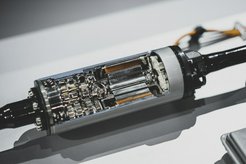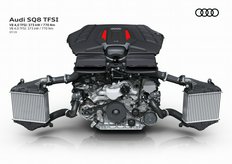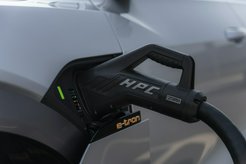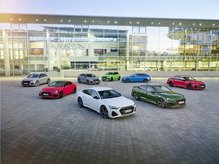Articles on Audi
Est. 1969 in Germany
History
Audi AG is a German automaker in the Volkswagen Group. It can trace its historic roots to several automakers from the early 20th century, though Audi's present-day form is created by Volkswagen in 1969.
History
The surname of Audi's original founder, August Horch, means 'listen' in German, and 'audi' is the Latin word bearing the same meaning. The four rings of the Audi logo each represent one of the four companies that merged into Audi's predecessor, Auto Union, which formed in 1932.
Before WWII, economic pressure of the time led Auto Union to focus on economy cars, and the Audi brand disappeared in 1939.
In the 1960s, Volkswagen acquired a 50% holding in Auto Union, including the DKW and Audi brands with the rights to the new engine design funded by Mercedes-Benz. In 1968, VW relaunched the Audi brand with the Audi 100.
Technical Uniqueness
- Galvanization: Audi was the first mass-market automaker to produce 100% galvanized cars to prevent corrosion.
- Aluminium Space Frame: Audi introduced the aluminium space frame (ASF) that is lightweight and that improves torsion rigidity compared to a conventional steel frame with the D2 A8. Currently, A8, R8, and TT use the ASF.
- Drivetrain Layout: While Audi vehicles are frequently equipped with quattro all-wheel drive, many are available with front-wheel drive. However, unlike most manufacturers, Audi equips its larger vehicles with longitudinal engines that stick in front of the front axle, producing the characteristic front overhang.
- Engines: To accommodate longitudinally-mounted engine in front of the front axle, Audi has used a couple of rare engine configurations: It is one of two (alongside Volvo) to have used the inline-5 engine, which is still available today. It was also the first to use a W12 engine that is now exclusive to Bentley.
Current Lineup
Audi's current vehicle lineup consists of hatchbacks, sedans, wagons, and crossovers:
- Hatchback: A1, A3, S3, RS3
- Sedan: A3, A4, A5, A6, A7, A8, S3, S4, S5, S6, S8, RS3, RS5, RS7
- Wagon: A4, A6, S4, RS4, RS6
- Crossover: Q2, Q3, Q5, Q7, Q8, e-tron, SQ2, SQ5, SQ7, SQ8, RS Q3, RS Q5, RS Q8
- Convertible: A3, A5, TT, R8, S3, S5
- Coupe: A5, TT, S5, TTS, RS5, TTRS
- Sports Car: R8
Rating
61% average score for brand's products.
Keywords
awd
213 Items
multi-link
202 Items
turbocharged
183 Items
dohc
176 Items
manual-transmission
122 Items
fwd
88 Items
compact-car
85 Items
macpherson-strut
67 Items
audi-s
66 Items
v8
60 Items
mid-size-car
52 Items
audi-rs
35 Items
mild-hybrid
29 Items
supercharged
24 Items
cvt
21 Items
subcompact-car
19 Items
full-size-car
19 Items
phev
15 Items
double-wishbone
15 Items
v10
12 Items
sohc
8 Items
w12
5 Items
electric-vehicle
5 Items
rwd
4 Items
v12
2 Items
quattro
2 Items
Show all
Articles

Audi has long touted its engineering prowess, perhaps most indelibly of its integration of permenant symmetric all-wheel drive system, quattro. In recent years, Audi has incorporated a range of advanced chassis technologies built around all-wheel driv...
07 Aug 2020 · Auto

As the Euro 6d emission standard comes into effect in January 2021, Audi is replacing the V8 diesel engine found in current SQ7 and SQ8 models with a new petrol V8 TFSI engine for the 2021 Model Year. The 4.0 TFSIEssentially a detuned version of the en...
16 Jul 2020 · Auto

Audi explains that its e-tron models are capable of high charging speeds because the charging capacity of up to 150 kW is available for a large portion of the charging procedure, thanks to sophisticated thermal management of the lithium-ion battery pac...
05 Jun 2020 · Auto

Audi Sport GmhH manufactures RS models that represent the pinnacle of each respective series in Audi's expanding lineup. Each combines everyday usability with characteristic RS design and performance. Let's look at how Audi designs, develops, tests, an...
26 May 2020 · Auto
That's all for now.